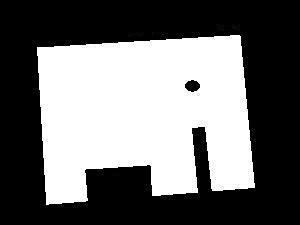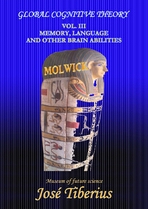3.b) Persistence of brain memory
3.b.1. Short-term memory
All the information the brain has used since the last time the system performed its maintenance will be in this memory; usually, since the person slept enough time.
The degree of the info conservation will depend on the mentioned time and, of course, on the physiological and genetic capacity of each.
The memory will feed mainly on the data that has gone through the auxiliary working memory from both medium and long-term memory, the experience, and reasoning during life through the perception.
Due to historical evolution, this memory is most efficient for approximately 16 hours, reserving 8 hours daily for its maintenance. Admittedly, a person does not use all the sleeping time to clean short-term memory; a significant amount of time will devote to the transfer of information from medium-term to long-term memory and other diverse maintenance functions.
There are short-term memory cleaning systems highly recommended, and others advise against strongly. Just say the first will not be easy to obtain if there are elements in the short-term memory generating tensions and demanding the individual's attention. The effects of abusive ingestion of alcohol can be an example; in turn, this can give an idea of the effects of non-abusive but counterproductive ingestion, especially for the data contained in this memory.
3.b.2. Medium-term memory
Maintaining data as organized as possible increases optimization in the medium-term memory, it will probably allow grabbing some info not organized immediately to do it afterward. Therefore, it eliminates duplications and permanently saves the information by reference to previous data, freeing a large quantity of the memory's capacity.
In the future, it is very likely that computers will always be working, whether by running requested programs or reorganizing.
There are already programs running automatically: defragmenting and maintenance of the hard drive, cleaning the Windows system log, search for and downloading of news or installing programs updates, compression tasks, and anti-virus.
The expression of medium-term memory is useful but does not precisely reflect the nature of its content.
In this memory, the information will last for quite some time. However, the time will be longer the relational and less concrete the data is. That is, if the information can be obtained not only directly, but also by its internal relationships.
Regardless of whether specific information goes in its original state, like the birthday of a friend, medium-term memory tends to be more fixed as the data transforms into concepts defined by a system of multi-dimensional references.
Over time, concepts will remain in memory by reference because precise info usually ceases being useful. If relevant, it becomes a part of instantaneous memory or math memory, and the relations will tend to incorporate into the multi-dimensional reference system. Moreover, if required, the system will add a new dimension.
Not all these processes are free from errors; the appropriate mechanisms in the majority of cases can turn out to be inadequate for others.
One of the most delicate circumstances occurs when an idea repeats many times during a specific period, and especially when it appears as a hypothesis that develops in convoluted ways. By the mechanisms in the brain, the data will save in deeper layers corresponding to more permanent concepts or ideas of the memory.
Afterward, when our memory manager accesses this material, it will likely interpret it as already accepted, just because it is in a deep layer.
The error can be significant –an external idea is supplanting our real knowledge or feelings!
It is called brainwashing, and it may happen, for example, when reading a book that repeats something thousands of times. Each time, the brain has enough time to memorize the idea or transfer it to a deeper layer. Of course, the effect depends on the ideas and individuals.
3.b.3. Long-term memory
This expression is more descriptive than the previous one, but it also needs some elucidation as far as its nature.
If medium-term memory configures as a multidimensional system, long-term memory has fewer dimensions than the medium-term and constitute the essential character of a person, not of its knowledge. In other words, the commonly known as general personalized principles such as justice, equality, liberty, respect, education, the benefit of the doubt, and many more.
Knowledge or concepts reside in the deepest medium-term memory layers, or otherwise stated, in the most superficial layers of long-term memory.

The necessity to re-adapt these principles to a greater or lesser extent produces a stimulating effect on personal growth and development. The unconscious does not like the idea; changing its beliefs supposes the recognition of some errors in them; it is also a massive task because all the remaining memory will need to readjust. In periods of quick development of the character, the person will probably sleep more.
Following the thread, this vision is coherent with people sleeping less with age.
3.b.4. Vital memory
It is not about visual or emotional memory, but a special type of a visual-emotional nature like the extra-fast movie a person sees when thinks there is a probability of dying in a matter of seconds.
The content varies from person to person but usually tends to be a sequence of very symbolic emotive images in chronological order.
Another unique and super persistent memory could be the genetic memory, which contains all of the genetic load transmitted to the descendants.
